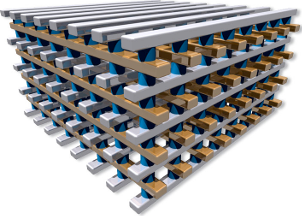Secret Key
The foundational key for Blockchain transactions, used for signing and verification.
- Supported Types: ECDSA and EdDSA, widely used in Bitcoin, Ethereum, and other Blockchains.
The MPC SDK provides tools for managing cryptographic keys securely using distributed key-sharing techniques. This ensures that no single device or entity holds the full key, enhancing security and eliminating single points of failure.

Distributed shard storage ensures no single point of failure.
Compatible with various Blockchain ecosystems and use cases.
Backup and recovery options protect against device loss or failure.
Designed to manage multiple keys and configurations efficiently.
The foundational key for Blockchain transactions, used for signing and verification.
Each secret key is divided into shards stored across multiple devices.
Devices or nodes that participate in managing shards.
Defines the number of shards required for operations.
Organizes keys and shards for efficient management.
The MPC SDK provides two flexible modes for generating cryptographic keys: Key Generation with Mnemonic and Key Generation without Mnemonic. Both modes leverage the distributed nature of MPC to ensure maximum security while supporting diverse user needs.
This mode integrates with mnemonic phrases, widely used in Blockchain ecosystems, to ensure compatibility with existing wallet recovery standards.
Ideal for users who prioritize compatibility with existing wallet systems and require secure recovery options.
This mode eliminates the need for mnemonic phrases, focusing on direct and highly secure key generation within the MPC system.
Ideal for users prioritizing maximum security and who do not require mnemonic-based recovery options.
Secure signing without revealing the secret key.
Shards can be securely backed up on the cloud.
The litepaper describes how end-user devices, CrossBar PHSM modules, and service nodes collaborate to keep keys split and verifiable using the MPC SDK.
